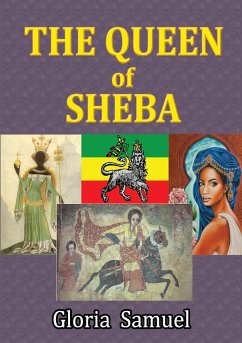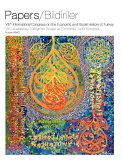The queen of Sheba has been called a variety of names by different peoples in different times. To King Solomon of Israel she was the Queen of Sheba. In Islamic tradition she was called Bilkis, Bilqis, Balqis, Balquis, Bilkish or Bilqays by the Arabs, who say she came from the city of Sheba, also called Mareb, in Yemen or Arabia Felix. The Roman historian Josephus calls her Nicaule. The Luhya of Kenya call her Nakuti and in the Ethiopian account she is named Makeda (M¿k¿d¿. She is said to have been born some time in the 10th century BC. One of the beliefs is that she loved a king named Hemant. Traditionally her lineage was part of the Ethiopian dynasty established in 1370 BC by Za Besi Angabo, which lasted 350 years; her grandfather and father were the last two rulers of this dynasty. According to the Kebra Negast, her mother was known as Queen Ismeni, and in 1005 BC, Makeda's father appointed her as his successor from his deathbed.
Hinweis: Dieser Artikel kann nur an eine deutsche Lieferadresse ausgeliefert werden.
Hinweis: Dieser Artikel kann nur an eine deutsche Lieferadresse ausgeliefert werden.








